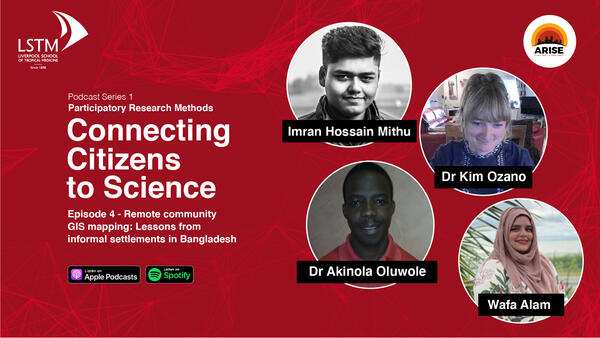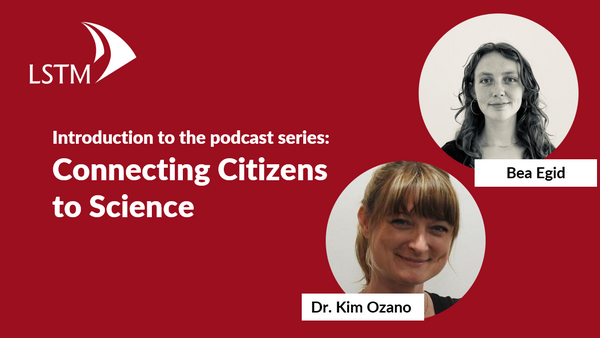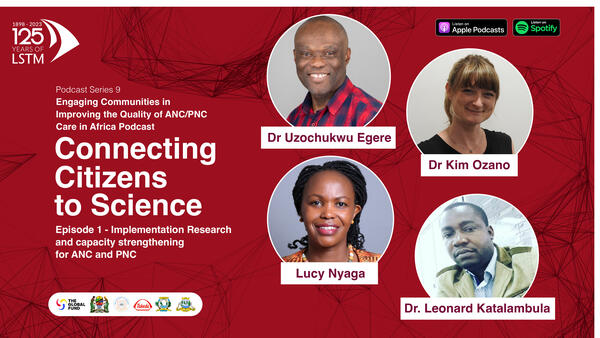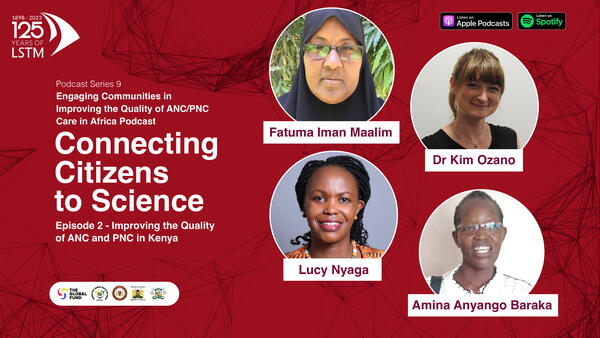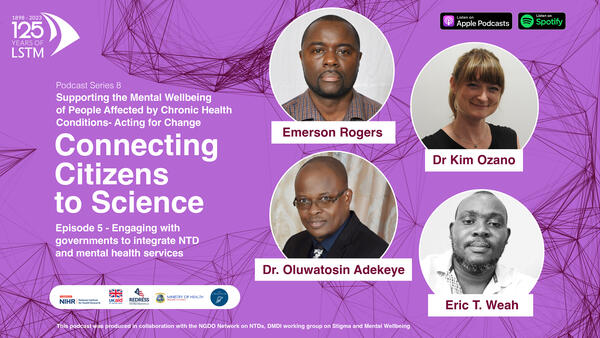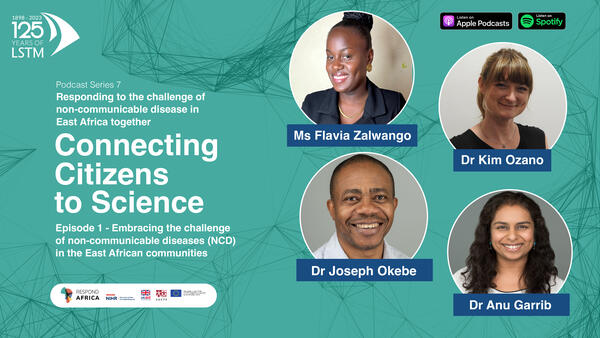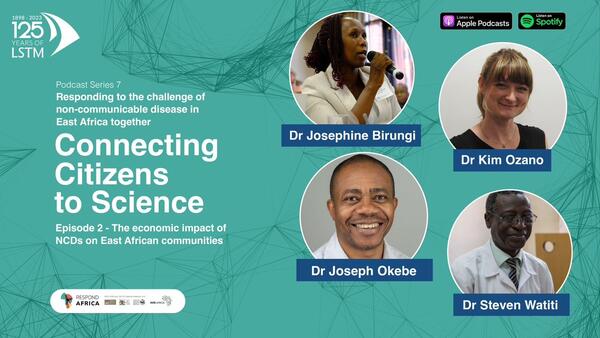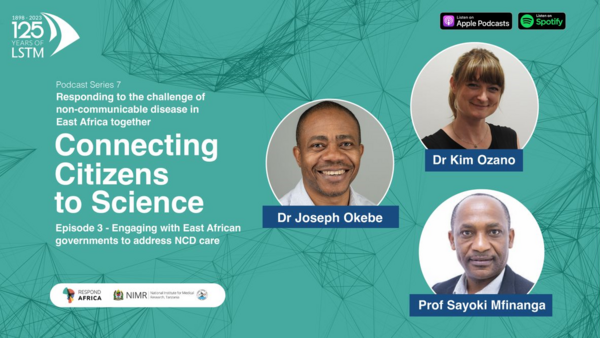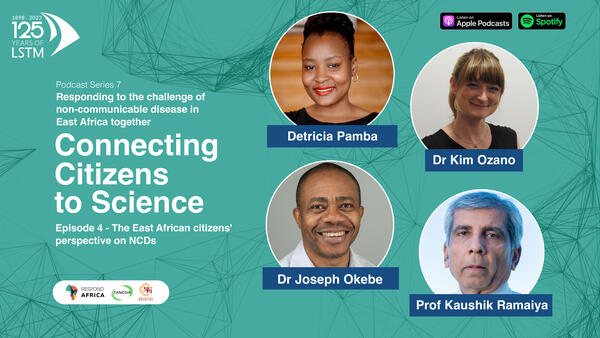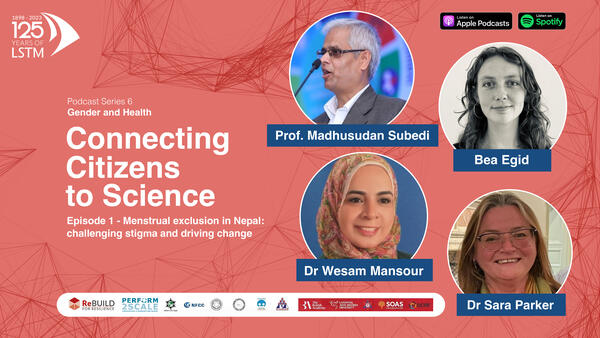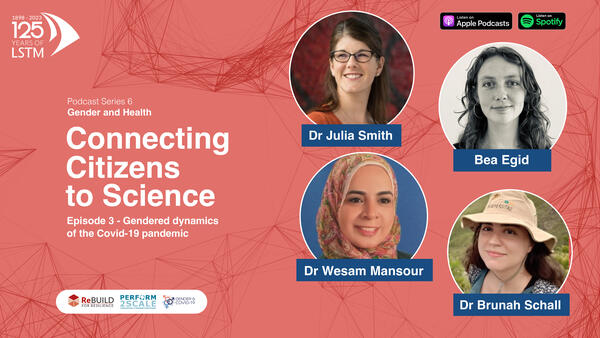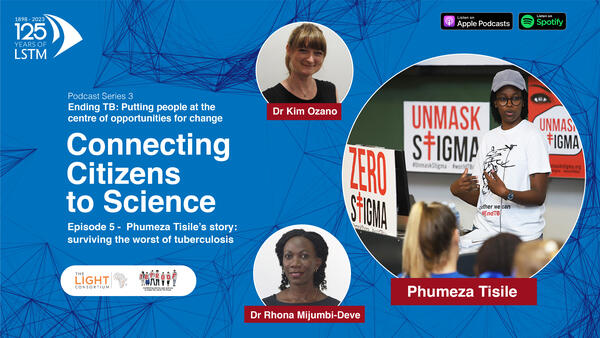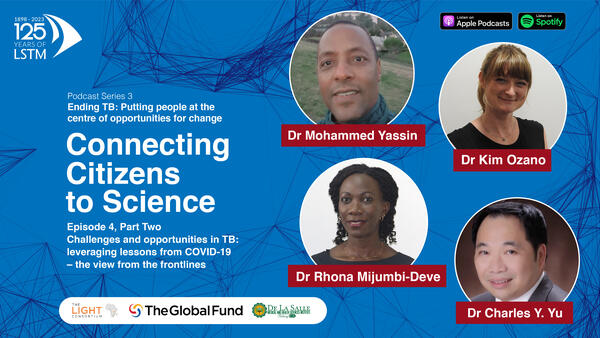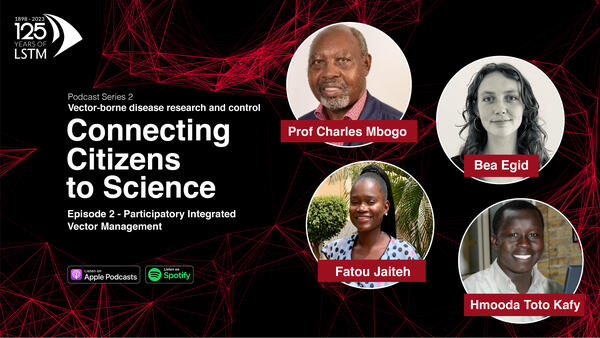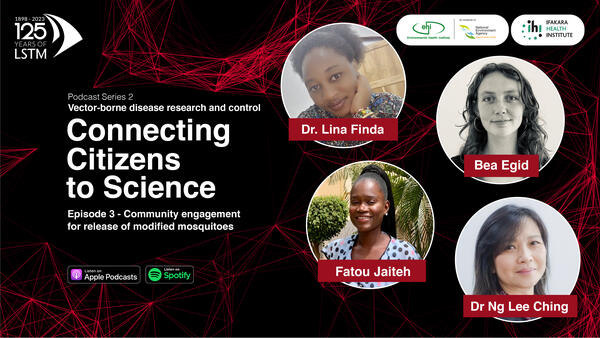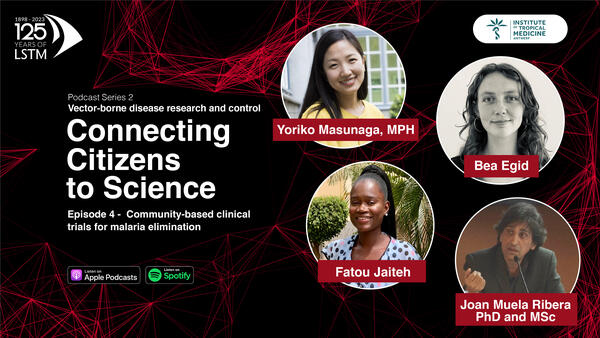
Connecting Citizens to Science podcast: Series 1-9
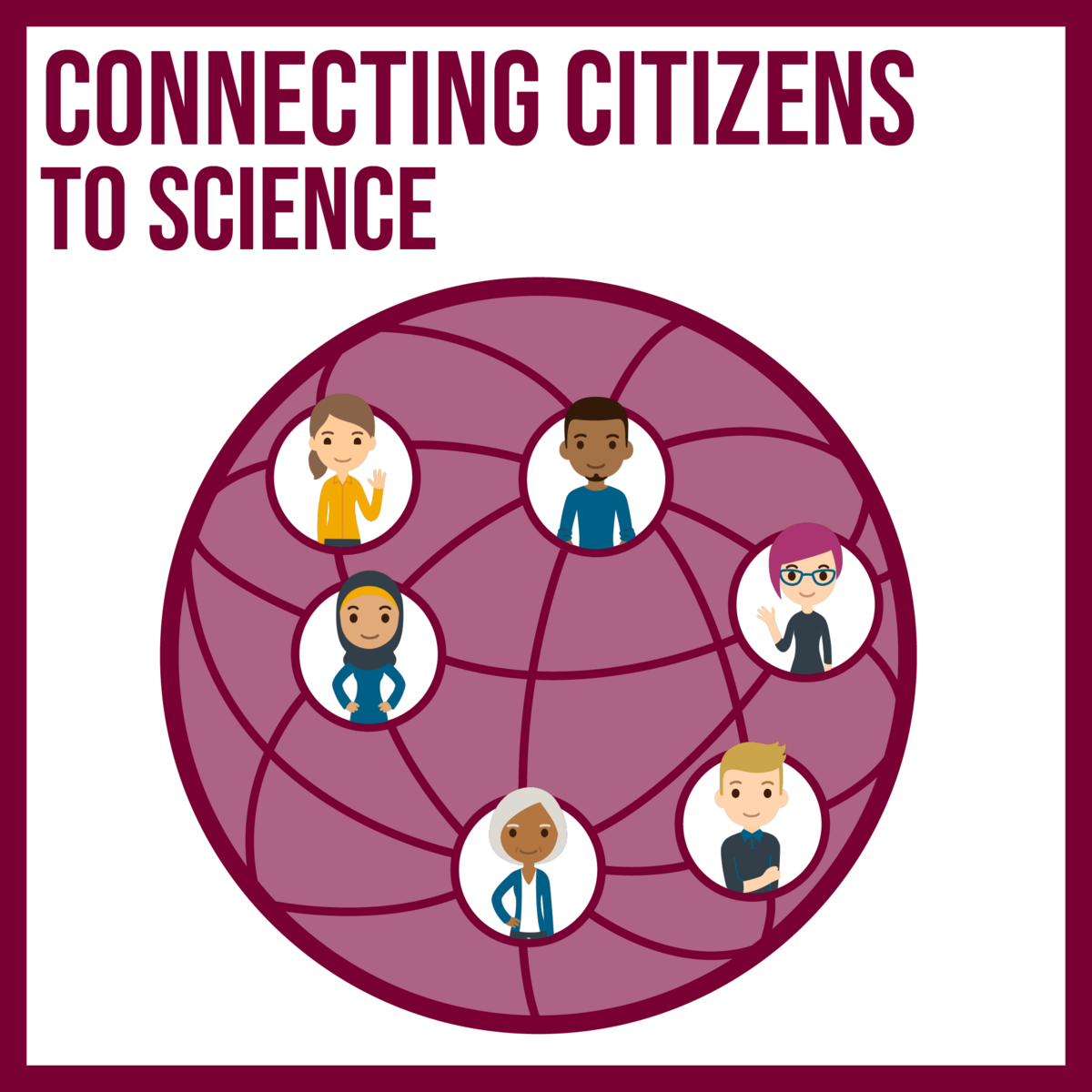
Effective health research is built upon equitable partnerships between researchers and communities. Join Dr. Kim Ozano and PhD student Bea Egid, from LSTM, as they interview expert researchers from across the globe who engage with communities in their research. If you are interested in how different research methods and disciplinary approaches can be used to co-produce knowledge and solutions to complex challenges in global health, this is the podcast for you.
Each series in this podcast has a disciplinary, topical or contextual theme and a guest-host from a partnering institution. If you have a theme that you would like to be explored on the podcast, please let us know below in the comments below or contact Kim Ozano or Bea Egid.
Intro music: Mike Donnelly
Logo: André Jahnoi Dallas
Series 9: Engaging communities in improving the quality of ANC/PNC care in Africa
S8: Responding to the mental wellbeing of people affected by chronic health conditions - Acting for change
-
E1- Supporting the Mental Wellbeing of People Affected by Chronic Health Conditions - Acting for Change
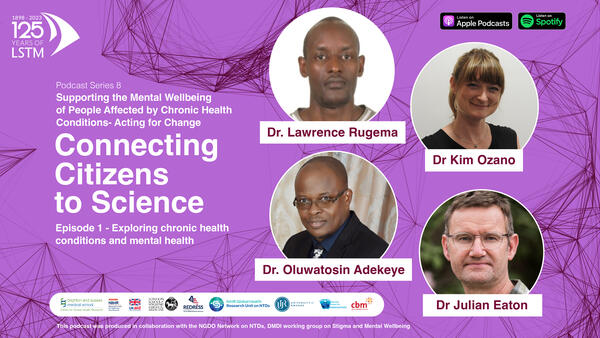
-
E2 - ‘I survived!’ Conquering HIV and AIDS, TB, Cancer and Meningitis in Uganda
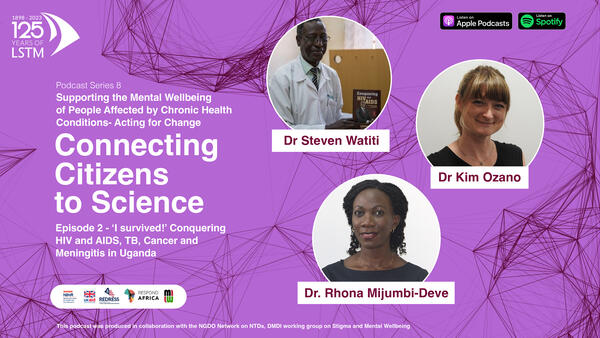
-
E3 - Being a co-researcher with lived experience of an NTD: ‘I was very much proud’
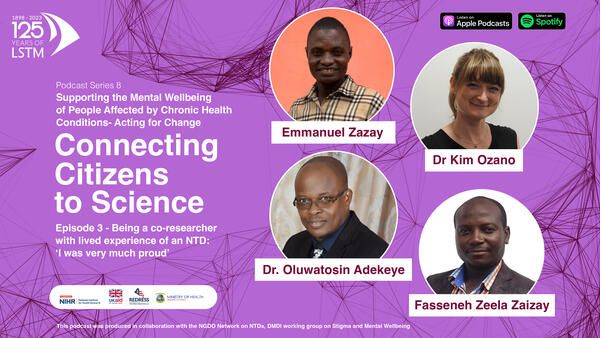
-
E4 - Improving mental health services for people affected by NTDs: Perspectives of community health workers in Liberia
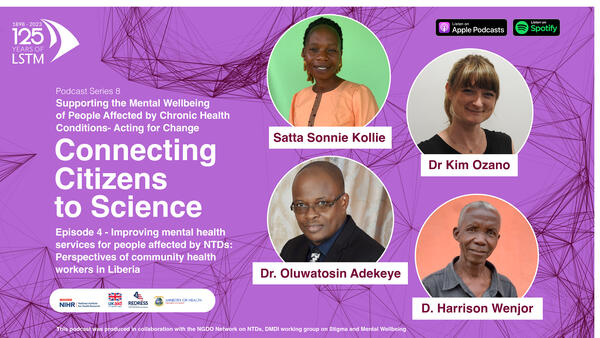
Series 7: Responding to the challenge of non-communicable disease in East Africa together
Series 5
-
E1 - Affordable and clean energy for improved health and climate action: Considering Sustainable Development Goals
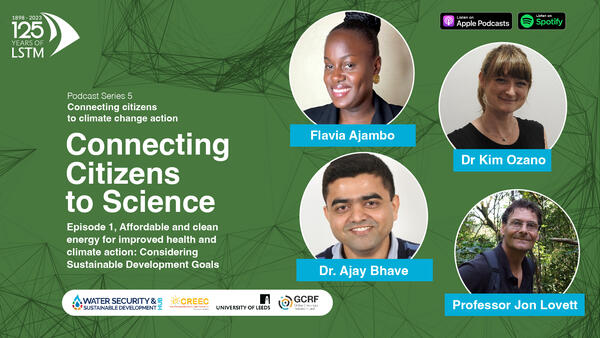
-
E2 - Climate change and citizen science approaches for addressing flooding and waterborne hazards in Ethiopia
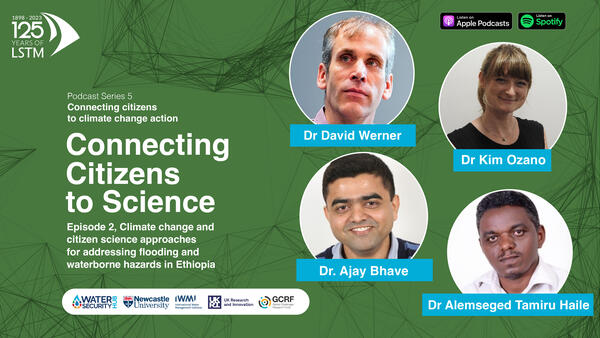
-
E3 - Climate change solutions in The Gambia: Coproduction approaches with pregnant women, schoolchildren and farmers

-
E4 - Climate change and vector-borne disease: A call for greater cross disciplinary research
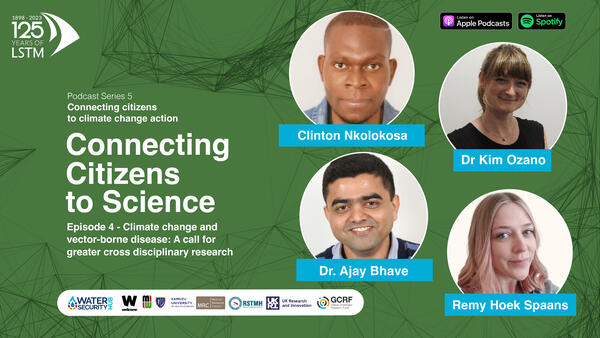
Series 4: Research for social change within urban informal communities
Series 4 is brought to us by the ‘Accountability and Responsiveness in Informal Settlements for Equity’ (ARISE). The ARISE consortium is all about promoting social change for improved health and wellbeing with communities and people living and working within urban informal spaces. Together, across 10 partners in 4 countries – Bangladesh, India, Kenya and Sierra Leone- they are co-developing solutions with communities to health and wellbeing challenges. However, co-production of knowledge for action is challenging due to the many and intersecting inequalities and power relations between researchers, development professionals, activists and communities. We will be exploring how ARISE is working to overcome these, in partnership with people in urban informal settlements or slums, to stimulate change.
-
E1 - Storytelling and visual methods with people living in informal settlements
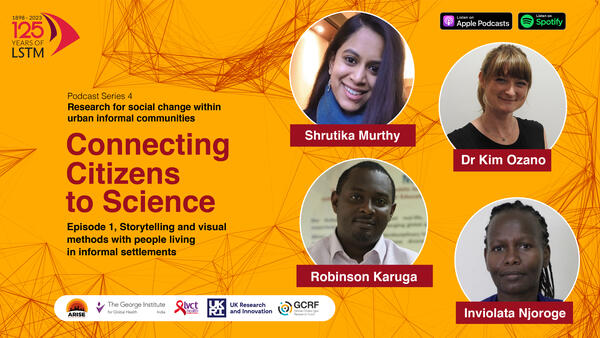
-
E2 - Intersections between Research and Activism
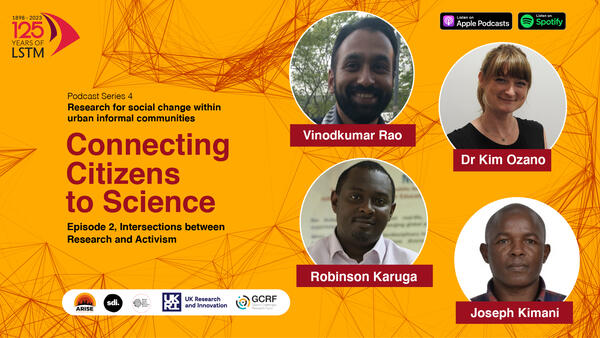
-
E3 - Covid 19 research and relationships with communities in informal settings for policy response
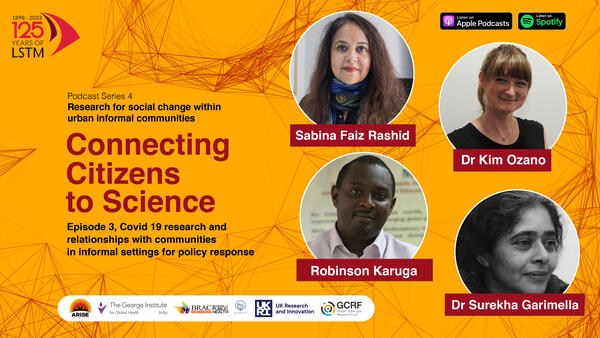
-
E4 - Participatory action research: from community collected data to action and change
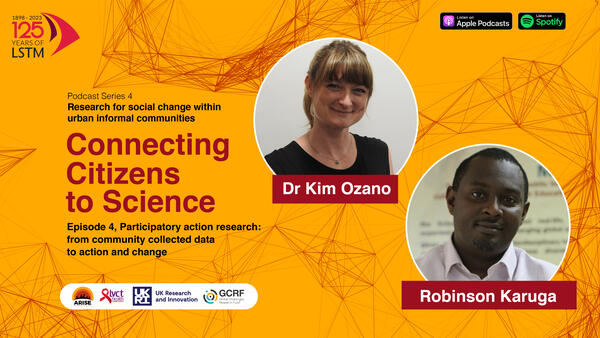
Series 3: Ending TB: Putting people at the centre of opportunities for change
Welcome to the third series of the Connecting Citizens to Science podcast. Working with the LIGHT research programme, in this month’s series we will be in conversation with global experts on the current challenges facing the local to global TB response. Behind Covid-19, tuberculosis is the second deadliest infectious disease across the world with more than 4100 TB-related deaths every day (WHO Global TB Report 2021). We will be talking about how evidence from and about communities and people can help ensure that decision-making is informed and that the global commitment to end TB by 2035 is achieved.
-
E4, Part 1 - Challenges & opportunities in TB: leveraging lessons from COVID-19 view from the frontlines
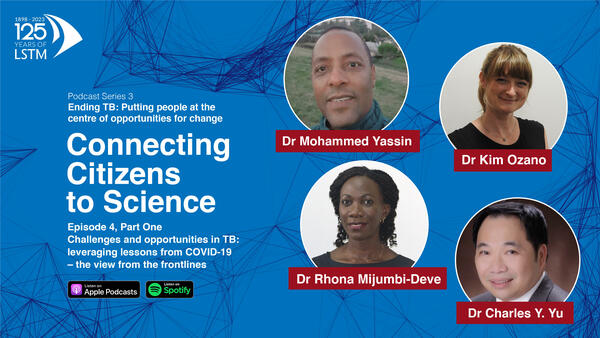
-
Episode 3 - Re-imagining TB treatment (or) the Challenge of TB treatment and the need for Change!
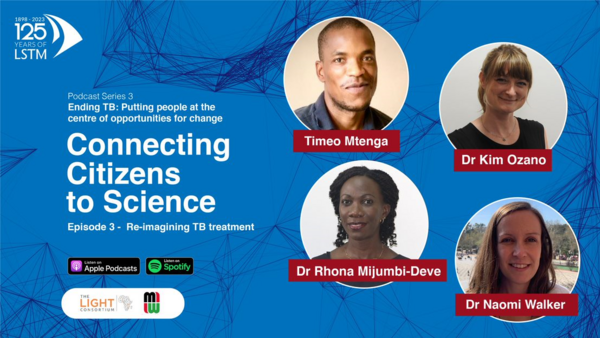
-
Ep2 - TB and diagnosis - Using state of the art technology to find and treat people living with TB
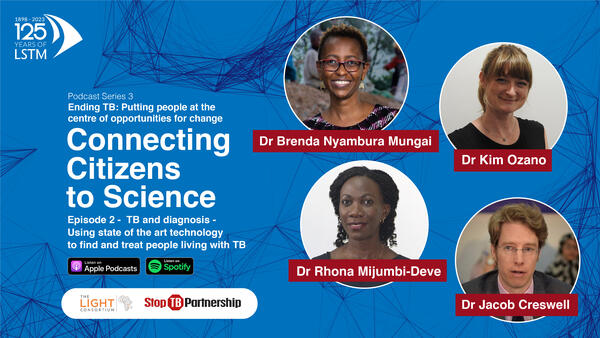
-
Episode 1 - TB and gender: changing the dynamics
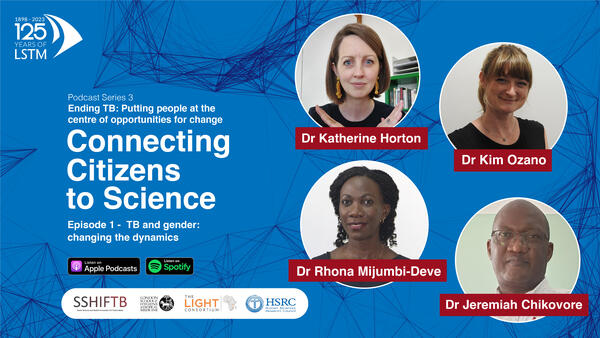
S2 - Participatory Integrated Vector Management
Series 1 – Participatory Research Methods
-
1 - Supporting equitable partnerships in global health - A toolkit for Participatory Health Research

-
Episode 2 - Social mapping and transect walks - lessons from Nigeria
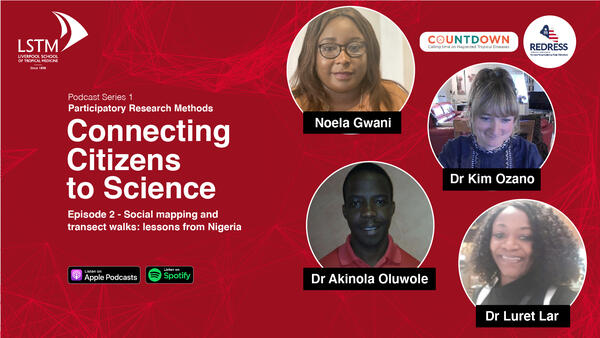
-
Episode 3 - Photovoice: lessons from Liberia and Nigeria working with people affected by severe stigmatising skin diseases
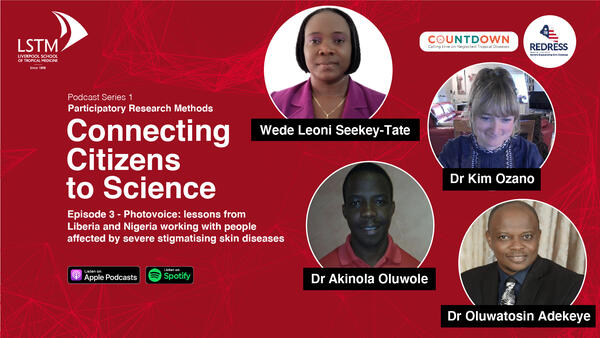
-
Episode 4 - Remote community GIS mapping: Lessons from informal settlements in Bangladesh
